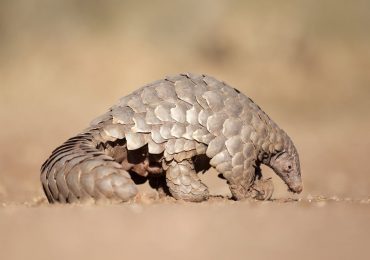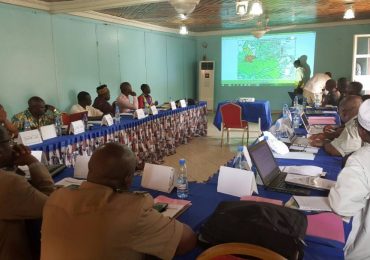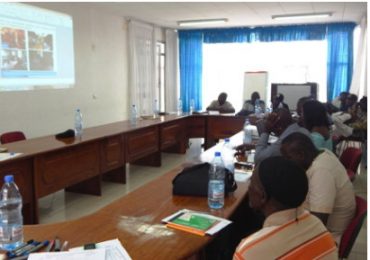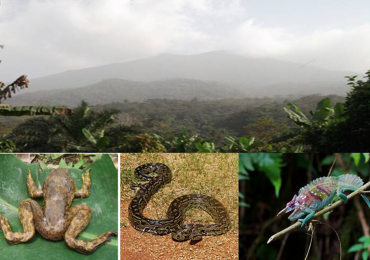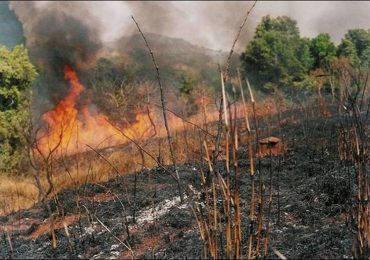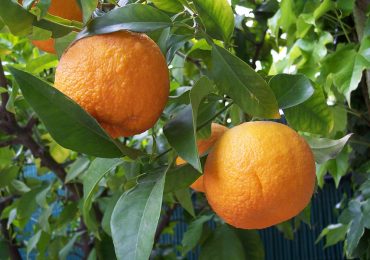Mount Cameroon, according the International Union for the Conservation of Nature (IUCN), is the most diverse ecosystem in Cameroon harbouring over 9,000 species of plant with 160 endemic to this area. These species have over the years been subjected to a range of threats including logging, forest fires, subsistence and commercial agriculture expansion. In a bid to salvage this plight, a national conservation NGO, the Environment and Rural Development Foundation (ERuDeF), under the auspices of the Ministry of Forestry and Wildlife (MINFOF), in 2011, embarked in restoring threatened trees within the Mt Cameroon forest area.
Shancho Ndimuh, with filings from T. A. Wokwan
Focusing on the threatened Zebra wood (Microberlinia bisulcata), this NGO, in collaboration with local government and adjacent communities, succeeded in re-enforcing 20,000 seedlings in the MCNP and the peripheries including Community Forests.
These seedlings were planted in villages within the four conservation clusters of Mt. Cameroon with close to 8118 planted within the close to 10 ha Bakingili Community Forest. Last September, 2017, the Manager of Cameroon Mountains Threatened Tree Programme, Adeline Tengem, undertook a two week evaluation trip to these conservation clusters and discovered that more than 5000 of the 8118 trees planted within the Bakingili Community Forest in the West Coast cluster of the Park have been cut down by staff of the Cameroon Development Corporation (CDC) for crop cultivation.
“I felt so embarrassed and disappointed when I got to the Bakingili Community Forest and discovered that CDC staff have cut down up to 62% of the trees we planted here in 2014/2015; most of the ‘blogs’ that trees were planted on were cut down and replaced with cassava. Our flagship species Zebra wood (Microberlinia bisulcata), that was already up to about 4 metres height and 30cm diameters at brreast height were found down. In fact the survival rates of trees in this Community Forest dropped from 80% (from 2016 evaluation report) to 12%,” Miss Tengem recounted.
The Bakingili Community Forest Manager, Genesis Shifuh, who was part of the evaluation trip to the Community Forest, attributed the action of the CDC staff to ‘stubbornness’.
“We have called and educated them on several occasions but they keep on doing the same thing. They know exactly what they are doing because even when the trees were just planted, they were all summoned at the traditional council and reminded of the implications of destruction,” Mr. Shifuh said.
He noted that this tree destruction by the CDC staff started in 2016 and recommended that legal actions be taken against these farmers by MINFOF, to deter others from emulating such a bad example
. “If these criminals are not punished, others will join the team in farming inside the Community Forest and my efforts will have been wasted at the end of the day”, he added.
The Bakingili Community Forest Officer, Thomas Elive, on his part, disclosed that the Bakingili Village Forest Management Committee has, through a daily patrol, identified and transmitted the names of those cutting down the trees to the Divisional Officer of the West Coast Subdivision for disciplinary actions.
The Chief of Bakingili was especially disappointed, given that the regeneration of threatened trees in his Community Forest had helped in limiting the encroachment of CDC.
“Since we planted these trees, we have not had problems of land issues again with the CDC because they immediately stopped encroaching with palms. Now CDC staff have come in with their own destructive efforts in the name of farming” the Chief said.
Reacting to this, a CDC staff, who spoke on the basis of anonymity attributed the action of her colleagues to poor payment from the Corporation.
“We labourers work for at least 8 hours a day for a reward of FCFA 1500 per day that is before tax deduction. This amount is paid on the condition that you are able to clear around up 48 palm trees without which you will be paid less. These workers, like myself, have a family to take care of and as such have to look for alternative way to survive and farming in this area becomes an option,” she noted.
Whatever the reasons may be, the Manager of ERuDeF’s Cameroon Mountains Threatened Trees Programme, said such actions have negative effects on conservation efforts, especially for a species like Zebra wood (Microberlinia bisulcata),with only a few stands left in the Mount Cameroon Area.



